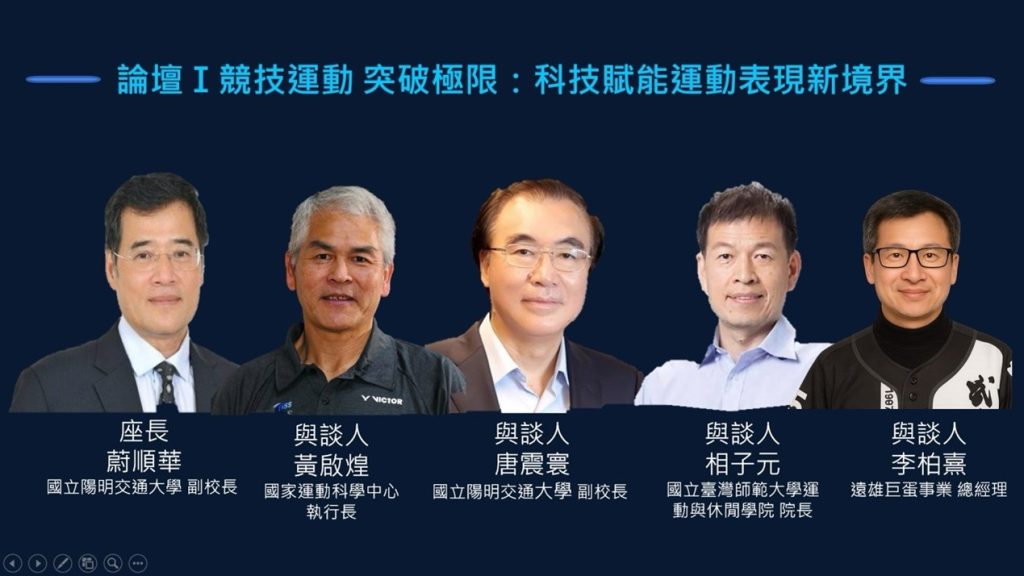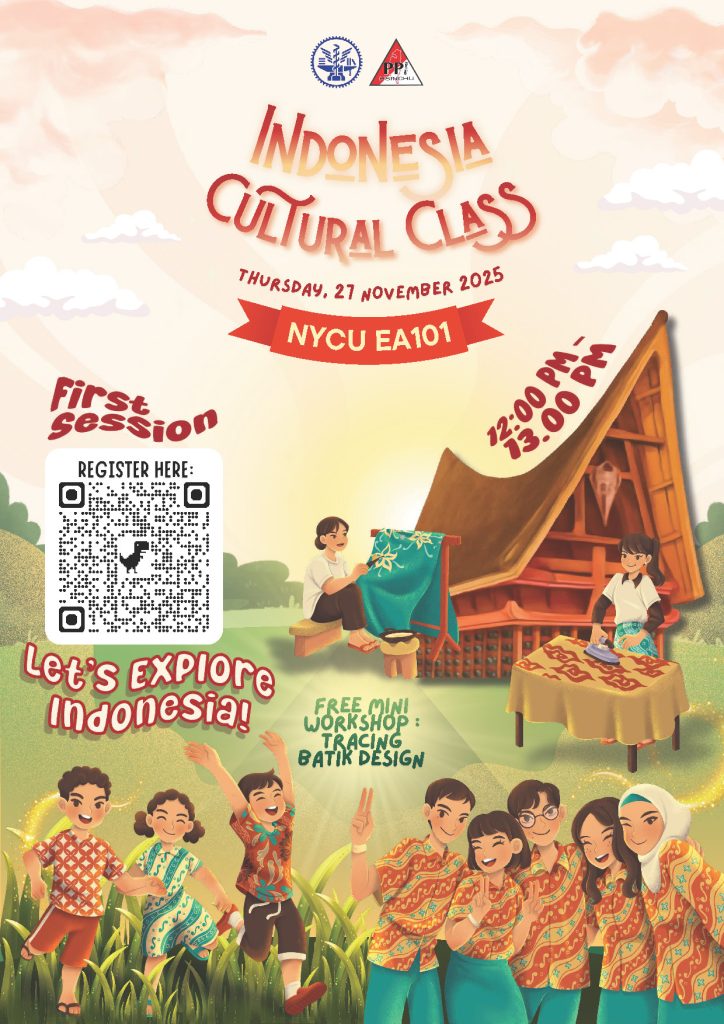Among the distinguished guests were Presidential Office Senior Advisor Wen-Jen Chien, NYCU President Chi-Hung Lin, and NCTU Alumni Association Executive Director Churchill Chen. Several research breakthroughs made their public debut, underscoring Taiwan’s growing influence in smart sports innovation.
Cross-Sector Collaboration Builds a Smart Sports Ecosystem
Leveraging AIoT, motion sensing, and data analytics, NYCU has delivered tangible results in both elite and public sports applications.
- Golf Precision Training Platform — Developed by Vice President Shun-Hwa Wei’s physical therapy research team, the platform uses biometric markers and motion data comparison to optimize athletes’ posture and minimize errors.
- Weightlifting Performance Monitoring — By analyzing bilateral ground reaction forces and barbell trajectory, the system quantifies fatigue levels, helping prevent injuries and extend athletic careers.
- Interactive Lower-Limb Strength Training — A gamified rehabilitation tool designed to boost training motivation and participation among seniors and general users.
In sports science, Professor Chih-Wei Yi’s interdisciplinary team created CoachAI+, a badminton tactics and strategy analysis system. Featuring a complete match database and smart stadium integration, the platform can simulate games, analyze shot patterns, suggest strategies, and automatically score points with shot placement detection. The system was showcased at CES 2025 and earned a TWICE Picks Award.
Data-Driven Performance Gains
Professor Li-Wei Ko’s team partners with hospitals and enterprises to apply IMU inertial sensing, Vicon high-speed motion capture, and AI-based assessments to sports like basketball, gymnastics, and archery.
For example, Taiwanese gymnast Chia-Hung Tang used the team’s analytics to improve landing stability—dramatically raising his success rate at the Tokyo Olympics.
The morning cross-disciplinary forum, moderated by VP Wei, examined how smart technologies can elevate sports.
- Chi-Huang Huang, CEO of the Taiwan Institute of Sports Science (TISS), emphasized accurate data analysis and actionable strategy.
- Po-Hsi Li, GM of Farglory Dome, called for open data sharing to enhance fan engagement.
- Tzyy-Yuang Shiang, Dean of NTNU’s College of Sports and Recreation, highlighted the importance of a shared language across medicine, engineering, and sports.
The afternoon session, chaired by VP Jenn-Hwan Tarng, addressed barriers to mass adoption—cost, usability, and integration.
- Dr. Chung-Lan Kao (TVGH) shared clinical applications of exoskeletons and advanced muscle training systems.
- Hong-Tun Lin (ITRI) presented baseball pitcher simulation and remote golf interaction technology, linking sports with tourism.
- Chieh-Cheng Chen (XSports Sports) proposed integrated sports centers combining nutrition, diagnostics, and training.
VP Wei concluded that smart sports must center on user needs and viable business models to achieve real-world adoption. Experts agreed that technology should empower coaches and athletes, enhancing performance while promoting public health.
With its unique strength in biomedical-engineering integration, NYCU will continue to unite industry, government, academia, and research to bring smart sports from the lab into daily life—ushering in a new era of health and high performance for all.
Link: NYCU NEWS





